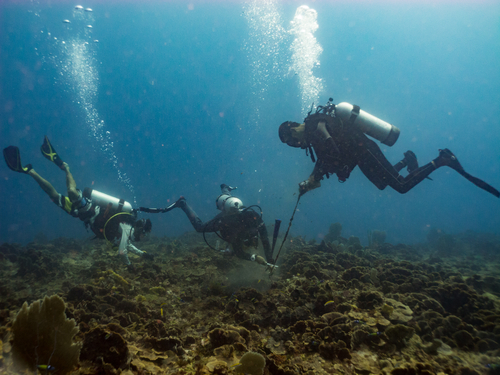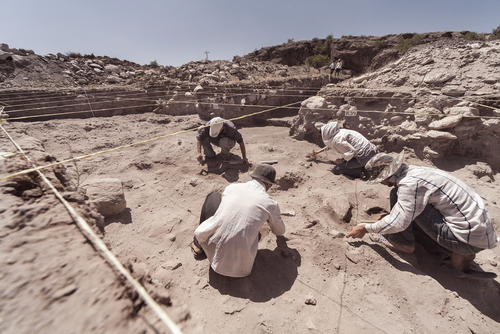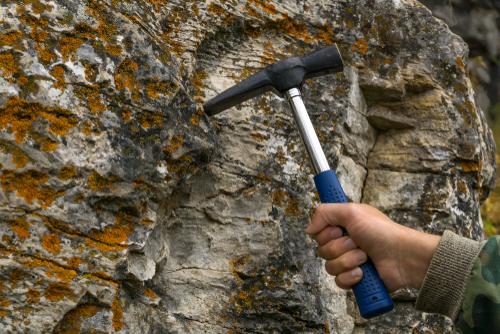According to a Business Insider report, about 86% of Americans sit at their desks all day to sundown. Many who aren’t fond of such type of work search for jobs that let them go outside for, among other things, research, and fieldwork purposes. Aside from stripping off boredom and stress, you get the best work experience outside office cubicles and meeting rooms.
Many college students are “bored” enough; they spend long hours in classrooms and lecture halls. They spend sleepless nights studying modules and completing assignments online. While sitting all day may be necessary to focus on getting school work and course requirements completed, it has never been a way to maximize learning. Effective learning, in fact, entails spending time outside the confines of the classroom or university.

Fieldwork or in-field studies are excellent opportunities for students to gain additional knowledge and hands-on experiences in real-life settings. There exist degree programs that encourage students to be on their knees, get dirty, and explore nature, historical sites, factories, power plants, and commercial areas for research, training, and internship purposes. And upon graduation, they are expected to land on jobs that let them do the same.
We list 10 interesting college degrees that allow you to get a dose of the outdoors for a more challenging, yet rewarding academic experience!
- Land Surveying
- Fire Science
- Marine Biology
- Forestry
- Archaeology
- Forensic Science
- Travel and Tourism
- Geology
- Petroeleum Engineering
- Viticulture and Enology
Land Surveying
Land surveying refers to the method of precisely measuring the three-dimensional or terrestrial distances and positions of angles between such distances. Land surveyors are responsible for precise measurements and plotting out of accurate locations of terrestrial sites. They also deal with exact measurements of land contours for development purposes and land divisions, property lines, and elevations.
A degree in land surveying can be acquired through community colleges that offer associate degrees in Land Surveying and Mapping Technology. On-campus, online, and hybrid bachelor’s degrees in land surveying are also available. Troy University, for instance, offers a Bachelor of Science in Surveying and Geomatics degree program. Aside from the regular coursework, fieldwork training is more emphasized. Topics such as physics, mapping, cartography, and photogrammetry are taken into consideration during fieldwork. Field studies also include the measurement of construction sites, research, and coordination of GPS measurements.
Fire Science
Fire Science is one of the most challenging and adrenaline-pumping career paths to pursue. Students and trainees usually don’t make it if they can’t be prompt, courageous, and selfless, as it involves saving lives and preventing further damage. They are expected to be ready to respond at any given time to emergency fire situations, be it in residential and commercial fires or massive forest fires.
Fire Science tackles the basics, including learning about fire characteristics and behavior to best handle fire situations. Fire chemistry, Physics, and the Chemistry of Hazardous Substances are some of its courses. Future firefighters and fire investigators benefit from the knowledge and hands-on experiences through this program.
Despite high risks and dangerous encounters, many find the degree and the work inviting. Among the schools that offer a bachelor’s or master’s degree in Fire Science is the University of New Haven in West Haven, Connecticut where students conduct mock experiments and investigations in state-of-the-art laboratories. An internship requires going out there and doing real fireman work.
Marine Biology
Marine biology involves the study of a large group of aquatic organisms from the smallest bacteria to the largest whales. An essential part of a marine biologist’s career is doing fieldwork in marshes, wetlands, lakes, seas, oceans, and all water forms. To obtain specimens, they use advanced tools and technology along with their scuba gear. Some marine biologists study specific aspects such as the physical and chemical factors affecting the sea, hydrology, and physical oceanography. A degree in marine biology leads to various careers including biological technician, ichthyologist or fish specialist, fishery biologist, marine mammalogist, microbiologist, coral reef biologist, and systems analyst.
A bachelor’s degree in marine biology is offered at the Florida Institute of Technology, where students do fieldwork at the estuarine areas of the Indian River Lagoon and the Atlantic Ocean marine ecosystems. A Bachelor of Science in Marine Biology program at the University of Alaska Southeast introduces students to the degree’s subdisciplines, including Marine Ecology and Marine Phycology through intensive fieldwork.
A master’s degree in Marine Biology, on the other hand, is offered at Northeastern University in Boston, Massachusetts, where students collect specimens, dive down to the depths of the oceans, or spend hours on the shoreline to collect specimens. The university also houses marine laboratories. A similar program is offered at the University of Oregon where student experience includes wading on mudflats to obtain samples of worm and clam species.
Forestry
One of the degree programs that involve in-depth field research in Forestry. Forestry degree holders have rewarding career options as forest rangers, consultants, or coordinators of forest-related programs under the U.S. Fish and Wildlife Service. They also collaborate with competent sustainability advocates and scientists for projects that promote a positive environmental impact. Forest rangers and administrators maintain camping trails, camping grounds, and other forest facilities. They are also responsible for enforcing laws and implementing regulations on campgrounds, roads, and public lands. Forest rangers also interact with people during campground visits and patrols.
At the Northern Arizona University in Flagstaff, Arizona, a bachelor’s degree in forestry is offered. Students are not confined within the four corners of the classroom; they are exposed to actual sites such as the mountain ranges in Arizona, and the San Francisco Peaks that are considered the country’s most popular mountain ranges. Field research is also conducted in the colossal Ponderosa Forest of the Colorado Plateau near Flagstaff. Students also additional courses like ecology and wildlife.
Archaeology
Archaeologists study physical evidence such as bones, artifacts, and fossils to effectively comprehend the lives and cultures of people and events of the past. There are also some archaeologists that study the behavior of people through garbage, such as that of 20th-century coal mining camps in California. A degree in Archaeology leads to employment in historical landmarks, colleges, and universities, private consulting firms, state and federal agencies, and museums.
Are you fascinated by ancient artifacts possibly unveiling from piles of soil and sand and deep holes? If you enjoy historical elements and excavations, a degree in Archaeology is ideal for you. As a student, you will also have the opportunity to learn and experience the work of archaeological supervisors and archaeological field technicians.
One of the academic institutions that offer a degree program in archaeology is Boston University in Massachusetts. The university has an excellent department offering bachelor’s and master’s degree programs in Archaeology handled by competent professors and instructors. Students are able to work with faculty not only in laboratories, classrooms, or online but also on the field. Boston University students get to tour the state’s museums, libraries, and other historical sites. They also will get to experience assisting professional archaeologists in excavation sites at Ethiopia, France, and Guatemala.
Forensic Science
Forensic Science deals with evidence acquired in crime scene investigations. Students take up courses like toxicology, pathology, and crime scene investigation. In reality, forensic scientists extract residue from bodily substances, drugs, and firearms and take them to the laboratory on a routine basis. Forensic scientists also deal with controversial cases such as arson, autopsy, death investigations, and DNA and fingerprint evidence.
One of the universities that offer a degree program in Forensic Science is Point Park University in Pittsburgh. Forensic Science majors take advantage of the university’s laboratories and technologies to examine crime evidence. As part of the curriculum, students conduct investigations in mock crime scenes in the university’s crime scene investigation house. Students also participate in actual internships, including in nearby Allegheny County Medical Examiner’s Office. A master’s degree in Forensic Science is also offered at the University of Lincoln.
Travel and Tourism
Being a travel expert or tour guide entails choosing the right travel and tourism school to enter. Some essential factors to consider include the frequency of field trips or tours, internships, and available programs. By working as a travel or tour guide, you share your acquired knowledge regarding the history, culture, and notable landmarks of specific places. Information on nature and its conservation can also be taught to travelers.
Bachelor’s and master’s degrees in Travel and Tourism have numerous areas of focus such as sport and adventure tourism, culinary tourism, sustainable tourism, hospitality management, events and meeting management, and tourism promotion. Field trips, tours, and internship opportunities in hotels, national parks, travel agencies, summer camps, camping facilities, and nonprofit organizations are available for students in and outside the country.
The W.P. Carey School of Business at Arizona State University is one of the top schools that offers a Bachelor in Tourism Development and Management degree program where graduates may pursue careers at resorts, travel bureaus, travel companies, and hotels.
Geology
Geology refers to the study of landforms and anything that involves the Earth’s surface. Geologists use tools and technologies to take samples of these materials–such as oil from wells, metals from mines, and water is drawn underground or from streams–and examine them. Geologists also locate rocks containing metals and other forms of substances and conduct research on the proper methods of extracting metals from rocks. With this, geologists spend a lot of time outdoors, as they also do field researches and internships in environmental agencies, natural resource companies, government agencies, and environmental consulting companies. Geology graduates can take on numerous careers in the areas of paleontology, volcanology, and hydrology.
At the California State University in Long Beach, a bachelor’s and master’s degree in Geology are both offered. The program is completely student-centered. It trains undergraduate students on research methods through significant laboratory and field-based opportunities. Graduate students, on the other hand also participate in fieldwork for their master’s thesis. Students are required to join a field trip to the Pisgah volcano in the Mojave Desert.
Another university that offers a degree in geology is the University of Minneapolis in Minnesota where geology students observe incredible rock formations at the Black Hills of South Dakota and Nevada Snake Range.
Petroleum Engineering
Petroleum Engineering refers to the technology of economically generating reservoirs such as oil, coal, steam, natural gas, and hot water. It also involves the creation of underground waste disposal facilities. Petroleum Engineering depends on concepts such as chemistry, mathematics, geology, thermodynamics, fluid mechanics, economics, and physics. Well-experienced petroleum engineers are expected to be familiar with oil regulations, oil well databases, field data collection devices, underground hydrocarbon storage facility design, testing, assessment, and execution of improvements in oil wells and fields. A petroleum engineering degree can lead to careers like drilling system engineers, refinery managers, and exploration directors.
A bachelor’s degree in Petroleum Engineering covers basic topics that deal with rocks and fluids on the earth’s surfaces and subsurfaces. This degree program incorporates courses that tackle fluid flow in reservoirs, along with drilling, and production methods with the aim to establish a better understanding of basic concepts. At the University of Kansas School of Engineering in Lawrence, Kansas and the Colorado School of Mines at Golden, Colorado, students are given the opportunity to participate in excursions to oil and gas fields. They tour as the largest oil field at the Rocky Mountains where students get to experience actual drilling and observe production processes.
Viticulture and Enology
Viticulture and Enology involve winemaking, grape production, and grape vineyard management. Viticulturists coordinate with vineyard and wine producers. Many of them also work as laboratory technicians or research scientists. Viticulturists help execute strategies for the production of grapes of optimum quality. They deal with processes such as cultivation and harvesting, disease and pest control, and effective identification of ideal characteristics of grapes for winemaking. Enology, on the other hand, is closely related to viticulture as it involves the study of the chemical and biological properties of wine. Enologists normally run laboratories and assess different wines and other liquor.
The University of California Davis (UC Davis) offers Viticulture and Enology bachelor’s and master’s degree programs. Specific topics included in the program curriculum include grape growing, food science, fermentation, and farming, and ecological chemistry. They tackle issues concerning the taste of wine. Other courses and topics also include vineyard management, winemaking history, and wine production in specific weather conditions. Students conduct grape cultivation in research centers like the Robert Mondavi Institute for Wine and Food Science at UC Davis. As part of the curriculum, UC Davis provides hands-on learning opportunities to its Viticulture and Enology students. There are field trips to the Napa and Sonoma Valley regions, the primary sites for the state’s burgeoning wine industry. Internships are also available wherein students are assigned to famous wineries, and gain actual skills in winemaking.










